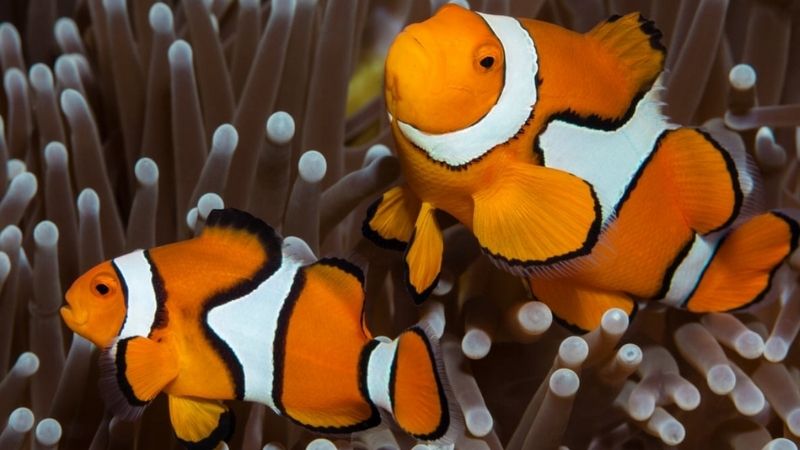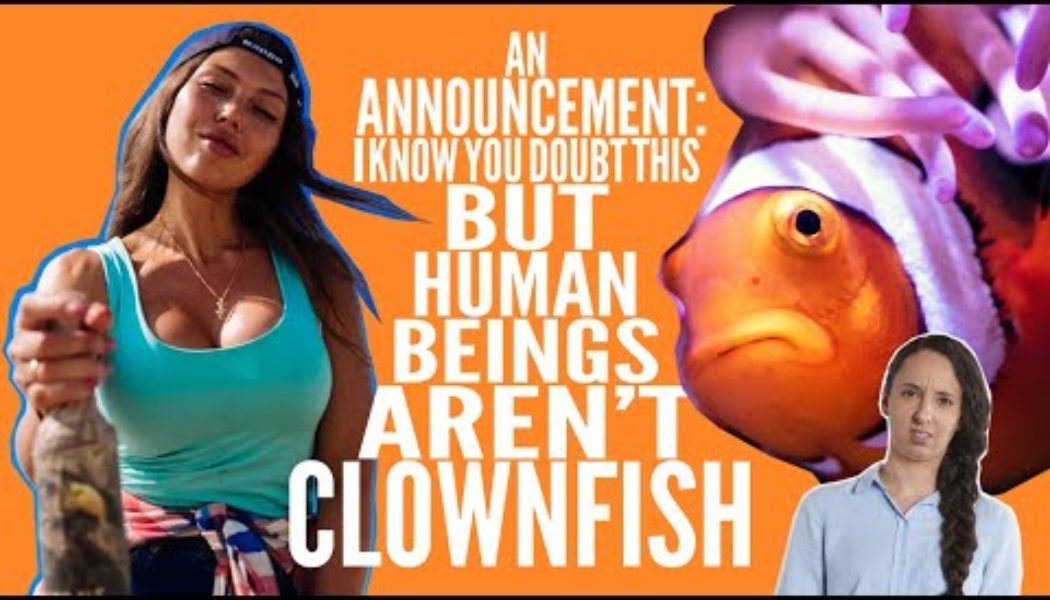Human Beings Are Not Clownfish
Have you ever heard someone say "human beings are like clownfish"? It's a popular phrase used to describe the way humans often behave and interact with each other. But the truth is, human beings are not clownfish. We are complex creatures with our own unique personalities, thoughts, and emotions. In this article, we'll explore why this phrase is not accurate and why we should stop using it.
The Pain Points
One of the most common pain points associated with the phrase "human beings are like clownfish" is the idea that humans are interchangeable. When we compare ourselves to fish, it reinforces the idea that we are all the same and don't have individuality. This can cause people to feel misunderstood or undervalued, leading to a lack of self-worth.
The Target
The target of this article is to debunk the myth that human beings are like clownfish. While it might be tempting to compare ourselves to animals, the truth is that we are much more complex than that. By understanding why this phrase is problematic, we can start to appreciate and value the unique qualities that each person brings to the table.
Main Points
In summary, human beings are not clownfish. Comparing ourselves to animals undermines our individuality and can lead to feelings of inadequacy. Instead, we should celebrate the unique qualities that make us who we are and work to create a world where everyone feels valued and appreciated.
Personal Experience
As someone who has struggled with self-esteem in the past, the idea that human beings are like clownfish has always bothered me. I didn't like the idea that I was just one of many people who were all the same and didn't have anything unique to offer. It wasn't until I started to appreciate my own qualities and strengths that I began to see the problem with this phrase.

When we compare ourselves to animals, it can be easy to overlook all of the things that make us different. For example, while clownfish might look similar to the untrained eye, they all have different personalities and behaviors. The same is true of humans - we might look similar on the surface, but we all have our own unique thoughts, feelings, and experiences.
The Impact of Language
One of the biggest problems with the phrase "human beings are like clownfish" is that it reinforces a narrow view of the world. When we compare ourselves to animals, it can be an excuse to treat others poorly or disregard their feelings. After all, if we're all the same, then it doesn't matter how we treat each other.

The Problem with Stereotypes
Stereotypes are a natural part of the human experience. We like to categorize things in order to make sense of the world around us. However, when we start to believe that these stereotypes are true, it can be harmful. For example, if we believe that all men are aggressive and unemotional, we might be more likely to dismiss their feelings or treat them poorly.
The Importance of Individuality
By acknowledging our own individuality and valuing the unique qualities that other people bring to the table, we can create a world where everyone feels seen and heard. When we stop using phrases like "human beings are like clownfish," we can start to appreciate the many complex and beautiful things that make us who we are.
Question and Answer
Q: Why is it important to value our own individuality?
A: Valuing our own individuality is important because it helps us feel more confident and secure in who we are. When we recognize our own strengths and weaknesses, we can work to improve ourselves and achieve our goals. It also helps us appreciate the unique qualities that other people bring to the table, creating a more diverse and vibrant world.
Q: What are some negative effects of stereotyping?
A: Stereotyping can be harmful in many ways. It can lead to prejudice, discrimination, and inequality. It can also cause people to feel misunderstood or undervalued, leading to a lack of self-worth. By acknowledging our own biases and working to overcome them, we can create a more just and equitable world for everyone.
Q: How can we promote individuality in our communities?
A: We can promote individuality in our communities by celebrating the unique qualities that each person brings to the table. This might involve creating spaces where people can express themselves freely, or providing opportunities for people to showcase their talents and abilities. We can also work to create a more inclusive society by challenging stereotypes and encouraging empathy and understanding.
Q: What can we do to combat stereotypes?
A: There are many things we can do to combat stereotypes. One of the most important is to educate ourselves and others about the harmful effects of stereotyping. We can also challenge our own biases and assumptions, and work to create a more diverse and inclusive world. By valuing individuality and celebrating the unique qualities that each person brings to the table, we can create a more just and equitable society for everyone.
Conclusion
The phrase "human beings are like clownfish" is not accurate and can be harmful. By acknowledging our own individuality and valuing the unique qualities that others bring to the table, we can create a more diverse and vibrant world. Let's work together to create a society where everyone feels valued and appreciated for who they are, instead of trying to fit into narrow stereotypes or categories.
Gallery
Human Beings Aren’t Clownfish... - Salvation & Prosperity

Photo Credit by: bing.com / beings clownfish
Clownfish Not Eating: 4 Ways That Might Be Occurring

Photo Credit by: bing.com / clownfish occurring
Human Lights Causing ‘Nemo’ Clownfish To Die Younger, Study Finds | The

Photo Credit by: bing.com / clownfish nemo payaso pez adapt climate acquario aquarium dory croisic swim specific australasia mating dependent benign reproductive vanish enca pagliaccio
I Can See You, Human! | Clown Fish, Betta Fish Tank, Fish

Photo Credit by: bing.com /
They Are Not Ours: November 2013

Photo Credit by: bing.com / ours they nms cc